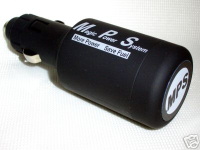The Turkey-Tryptophan Myth, and why do big meals make you drowsy? —
Thanksgiving is approaching, which means the "turkey makes you tired because it has high levels of tryptophan" urban legend shall once again be heard at tables throughout America. Baylor College of Medicine dietitian Rebecca Reeves debunks this legend in an interview with the
Houston Chronicle:
Q: So the tryptophan in turkey doesn't make you sleepy, right?
A: I am not sure how (that) gained wide acceptance. The urban legend is that the tryptophan in turkey is what makes you sleepy on Thanksgiving. Yes, the amino acid tryptophan is present in turkey, and in certain doses it can make you sleepy. But in reality, you'd need to eat an entire 40-pound turkey to get enough tryptophan to make a difference.
But her explanation of why people actually get tired after Thanksgiving dinner raises more questions in my mind than it answers:
Q: So why do people take a nap on the couch?
A: It's probably more due to alcohol. Or it could be that you got up that morning early to travel. Or it's been a long, beautiful day, and you're just tired. I hate to even mention this, but I've seen claims that because you're increasing your carbohydrates, you're increasing your blood sugar, maybe this could lead to sleepiness. But I'm not sure I agree with that.
Why is she doubtful that increasing carbohydrates (and thereby increasing blood sugar) can make you tired? She doesn't offer an explanation. Wikipedia offers a good summary of the
"increased carbohydrates makes you tired" theory, and it sounds reasonable to me (more reasonable than the theory that the drowsiness is all due to having had a few beers, or the fact that it's been "a long, beautiful day"):
It has been demonstrated in both animal models and in humans that ingestion of a meal rich in carbohydrates triggers release of insulin. Insulin in turn stimulates the uptake of large neutral branched-chain amino acids (LNAA) but not tryptophan (trp) into muscle, increasing the ratio of trp to LNAA in the blood stream. The resulting increased ratio of tryptophan to large neutral amino acids in the blood reduces competition at the large neutral amino acid transporter resulting in the uptake of tryptophan across the blood-brain barrier into the central nervous system (CNS). Once inside the CNS, tryptophan is converted into serotonin in the raphe nuclei by the normal enzymatic pathway. The resultant serotonin is further metabolised into melatonin by the pineal gland. Hence, these data suggest that "feast-induced drowsiness," and in particular, the common post-Christmas and American post-Thanksgiving dinner drowsiness, may be the result of a heavy meal rich in carbohydrates which, via an indirect mechanism, increases the production of sleep-promoting melatonin in the brain.

 November 19 was World Toilet Day. In honor of the occasion, activists in Switzerland held a "false-feces demonstration" outside the Bern train station. This involved placing hundreds of fake rubber droppings on the pavement. The point of this fecal fakery was to raise awareness about sanitation problems around the world. The Sun has pictures of the plastic poo.
November 19 was World Toilet Day. In honor of the occasion, activists in Switzerland held a "false-feces demonstration" outside the Bern train station. This involved placing hundreds of fake rubber droppings on the pavement. The point of this fecal fakery was to raise awareness about sanitation problems around the world. The Sun has pictures of the plastic poo.
 We've seen quite a few dubious devices that claim to enhance the performance and mileage of automobiles. The BioPerformance pills come to mind. However, the Magic Power System (aka MPS Power Shift Bar) is something special because it's a product that's not even vaguely plausible. It's on sale on eBay UK for the low buy-it-now price of £34.99 (about $52). All you do is plug it into the lighter socket of your car, and here's the improvements you will see:
We've seen quite a few dubious devices that claim to enhance the performance and mileage of automobiles. The BioPerformance pills come to mind. However, the Magic Power System (aka MPS Power Shift Bar) is something special because it's a product that's not even vaguely plausible. It's on sale on eBay UK for the low buy-it-now price of £34.99 (about $52). All you do is plug it into the lighter socket of your car, and here's the improvements you will see:

 A quick and easy solution to hair loss: Kotula's FlairHair visor.
A quick and easy solution to hair loss: Kotula's FlairHair visor.


 If you were lucky enough, you might have been able to get your hands on one of the approximately 1.2 million fake copies of the New York Times that were handed out today, mostly in NY and LA. Otherwise, like me, you'll have to try and buy a copy on eBay.
If you were lucky enough, you might have been able to get your hands on one of the approximately 1.2 million fake copies of the New York Times that were handed out today, mostly in NY and LA. Otherwise, like me, you'll have to try and buy a copy on eBay. This photograph, which supposedly shows Iranian president Mahmoud Ahmadinejad and his wife, has been circulating online for a few months. It's often linked to with teasing, tongue-in-cheek phrases such as "Ahmadinejad's wife is a hottie!" or "Ahmadinejad's wife is hotter than Palin!"
This photograph, which supposedly shows Iranian president Mahmoud Ahmadinejad and his wife, has been circulating online for a few months. It's often linked to with teasing, tongue-in-cheek phrases such as "Ahmadinejad's wife is a hottie!" or "Ahmadinejad's wife is hotter than Palin!"


